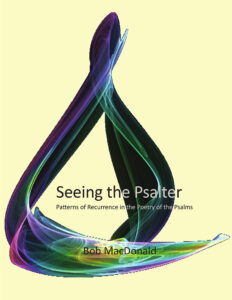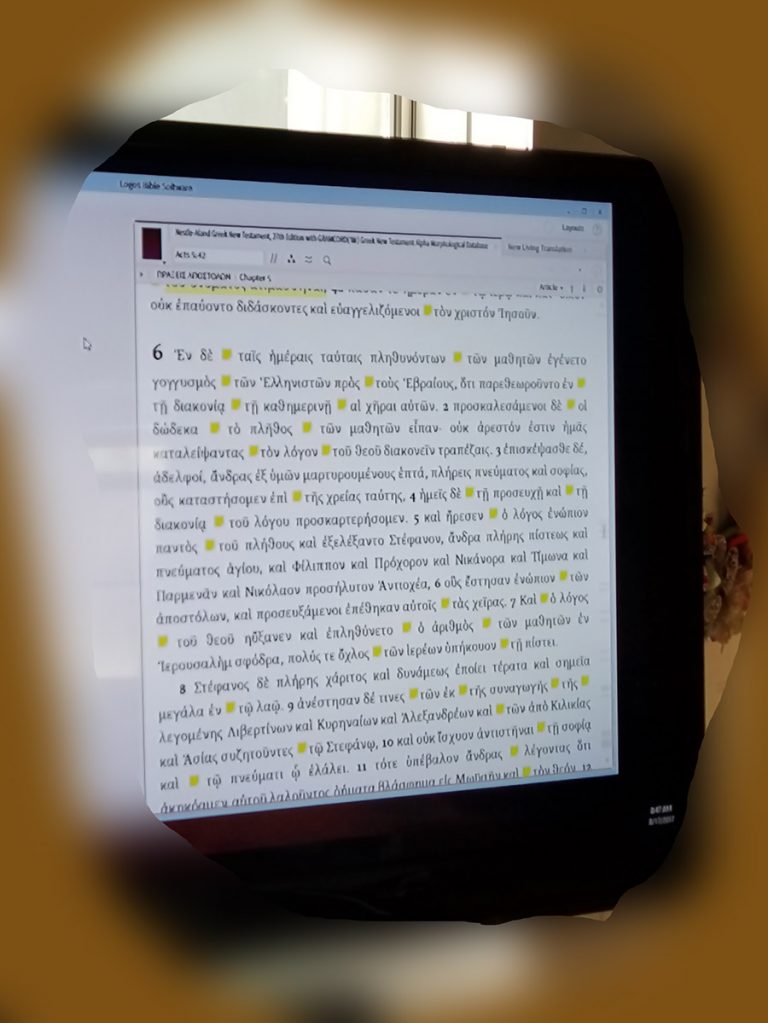Psalm 119:131 – Panting
With open mouth, panting,
I long for your commands.
This couplet poses some challenges in producing a readable translation, even though there’s little doubt of the meaning and feel of the verse. Even Mitchell Dahood, usually very creative, translates in a fairly straightforward fashion: “With gaping mouth I panted, / because I longed for your commandments” (Anchor Bible on Psalms, volume II).
Another good translation is this:
Parting mouth gaping I sigh heavily
Bob MacDonald, Seeing the Psalter, p. 386
for to your commandments is my longing
Now I haven’t mentioned before that Bob MacDonald translates Psalm 119 as an acrostic in English, which helps give it more of the feel of reading the Hebrew text. Some constructions in Hebrew are shaped by the acrostic form of the whole poem. Hebrew syntax is more friendly to the creation of an acrostic than English, with somewhat more flexible word order, but there is still more common ways of ordering words.

In this case, a little bit of apparent discomfort is conveyed by the wording, and I think Bob has caught that. The feel of reading the poetry has the sort of discomfort that relates to the state of mind described in the text. Bob notes that: “parting gaping, פער (p`r) gape with desire as a ravenous beast but gape needs help for the acrostic” (p. 389). Yes, it helps the acrostic, but I think it also gives us the feel.
Translation is interesting. A translator is always presented with the question of just what to transfer in translation into the new language. Bob MacDonald, for example, takes a rare path of transferring the acrostic, which presents a number of challenges, especially in conjunction with other goals he has in conveying the relationship of words in the Psalm. You’ll need to read his book, Seeing the Psalter, to get a full understanding of what he conveys.
It might help us to understand this process if we consider communicating about an area of specialty to someone who does not share our specialization. I help people with problems on their computers frequently, and most of the people I help don’t share the language or often the concepts I tend to use. In ordering to communicate, I have to try to speak in terms that can be understood not just by the non-specialist, but by someone generally computer-naive, by which I mean they really aren’t sure what a web browser is. They get pretty close to panting, longing to know just how to get something done, or even how to explain to me just what it is that they are seeing.
Many times I have either followed up a conversation by remote access to the person’s PC or even a visit, and found that what I had imagined the problem to be was not even close. They had a completely different problem than I imagined. I’ve gotten better at this over the years, but the gap still occurs.
In terms of God’s commands, or just right and appropriate action we can have a similar problem. We have principles in mind. We want to get things right, but our understanding just doesn’t stretch. Applied to our situation, the translation of principle into action can take an amazing amount of effort.
There is an inherent disconnect in our communion with God. We do not perceive infinity. As Paul says, we see partially, we await what is perfect, we do not have it in our possession. It’s a good idea to recognize this struggle for God’s commands. It’s an appropriate struggle. It’s one of the reasons that we are directed not to judge. We know partially; we judge partially.
Let’s keep the desire and lose the judgment.





